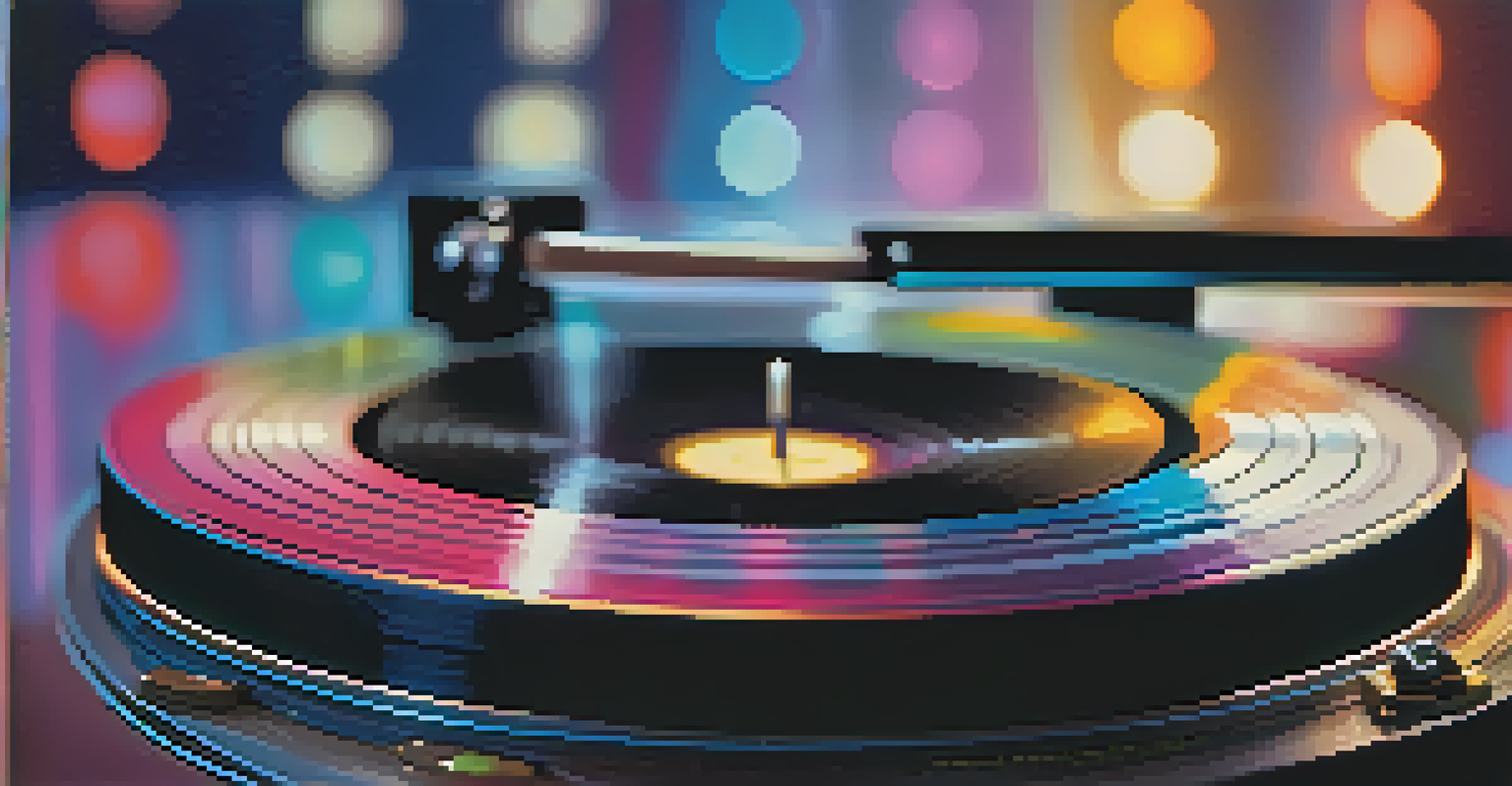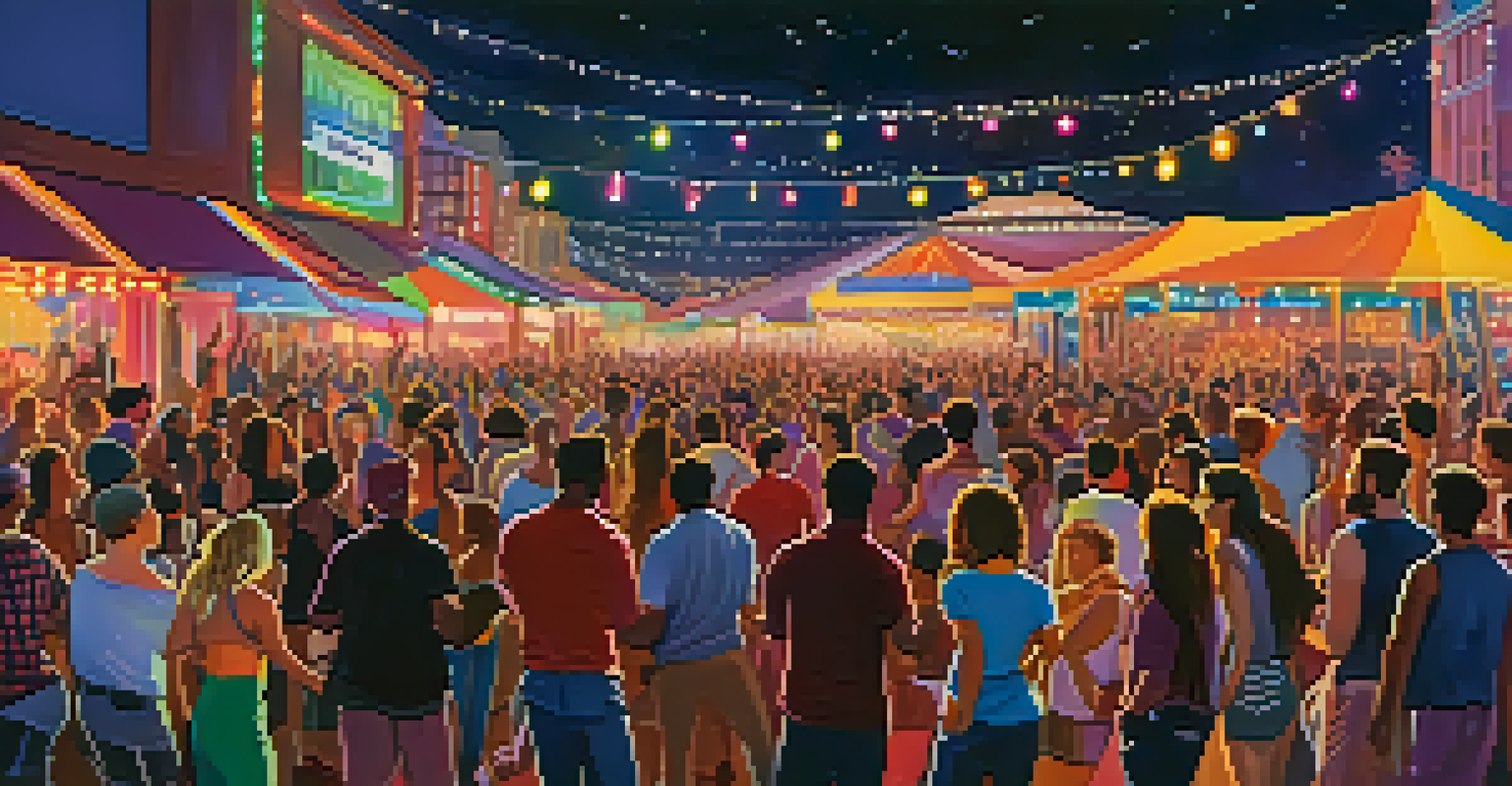The Importance of Music Licensing in the Digital Age

What is Music Licensing and Why Does It Matter?
Music licensing refers to the legal permissions needed to use someone else's music in your projects. In simpler terms, if you want to use a song in a video, a podcast, or any other medium, you need to get the appropriate rights. This process ensures that artists are compensated for their work and helps protect their creative rights.
Without music, life would be a mistake.
In the digital age, where content is shared rapidly across platforms, understanding music licensing has never been more critical. With millions of users uploading content daily, the risk of copyright infringement is high. Failing to secure the right licenses can lead to legal battles, fines, and the removal of your content, which can be a huge setback for creators.
Moreover, music licensing also contributes to the broader music ecosystem. When licenses are secured, it not only supports the original artists but also encourages a diverse range of music to be created. This flow of compensation helps artists continue producing the music we love.
Different Types of Music Licenses Explained
There are primarily two types of music licenses: synchronization licenses and mechanical licenses. A synchronization license allows you to pair music with visual media, like in films or YouTube videos. On the other hand, a mechanical license is required when you want to reproduce music in physical or digital formats, such as CDs or streaming services.

Understanding these licenses is essential for anyone looking to use music in their projects. For instance, if you're an independent filmmaker wanting to include a popular song in your film, you'll need to secure a sync license from the copyright holder. Each type of license serves a unique purpose, and knowing which one you need can save you time and money.
Understanding Music Licensing Basics
Music licensing is essential for legally using songs in projects, ensuring artists are compensated and their rights are protected.
Additionally, there are also performance licenses, which are necessary when music is played in public spaces, like restaurants or live events. These licenses ensure that artists receive royalties every time their music is played publicly, fostering a healthy industry where creativity is rewarded.
The Consequences of Not Licensing Music
Using music without the proper licenses can result in severe consequences, such as hefty fines and legal action. Many creators underestimate the risks, thinking their project is too small to attract attention. However, copyright holders actively monitor usage, and even a TikTok video can lead to a cease-and-desist order if music is used unlawfully.
Music is the shorthand of emotion.
Additionally, unauthorized use of music can damage your reputation. If you're seen as someone who disregards the rights of artists, it may affect collaborations and partnerships in the future. In the creative community, respect for others' work is paramount, and being caught in copyright infringement can tarnish your image.
Moreover, platforms like YouTube and Instagram have strict policies against using unlicensed music. Your content can be flagged, demonetized, or removed entirely, which can be disheartening for creators looking to build an audience. Protecting your work by securing licenses is a smart investment in your creative future.
How to Obtain Music Licenses
Obtaining music licenses can seem daunting, but it’s quite manageable with a bit of research. Start by identifying the type of music you want to use and the rights you need. Once you have that information, you can reach out to the copyright holder or use a licensing platform that can facilitate the process for you.
Many artists and record labels have official websites where you can find licensing information. Some even offer direct licenses for their music, making it easier for creators to get the rights they need without navigating through complex legalities. Services like ASCAP and BMI also provide valuable resources for finding licensed music.
Consequences of Ignoring Licensing
Failing to secure the proper licenses can lead to legal issues, financial penalties, and damage to a creator's reputation.
Additionally, consider using royalty-free music libraries. These platforms offer tracks that are pre-cleared for use, meaning you can use the music without the hassle of negotiating licenses. This option is particularly popular among independent filmmakers and content creators looking for affordable and accessible music.
The Role of Music Supervisors in Licensing
Music supervisors play a crucial role in the music licensing process, particularly in film and television. They are responsible for selecting the right tracks to enhance the mood and narrative of a project while ensuring that all necessary licenses are secured. Think of them as the matchmakers between filmmakers and musicians.
These professionals have extensive knowledge of the music industry and established connections with artists and rights holders. This expertise allows them to negotiate deals that benefit both the project and the musicians involved. By working with a music supervisor, creators can save time and avoid the pitfalls of navigating licensing on their own.
Moreover, music supervisors often have a keen ear for emerging artists, which can bring fresh sounds to projects. This not only enhances the viewing experience but also supports up-and-coming musicians, creating a win-win situation for everyone involved.
The Impact of Streaming on Music Licensing
The rise of streaming services has significantly changed the landscape of music licensing. With platforms like Spotify, Apple Music, and YouTube, the way people consume music has evolved, leading to new licensing models that cater to digital distribution. This shift has made music more accessible but has also complicated the licensing process.
For creators, streaming services usually require a blanket license, which allows users to access a vast library of music without negotiating individual rights. However, understanding how these licenses work is still essential, as it affects how artists are compensated. The more people listen to a song, the more royalties the artist earns, but transparency in these transactions can sometimes be lacking.
Future Trends in Music Licensing
Emerging technologies and tailored licensing agreements are transforming how creators access and use music in the digital age.
Furthermore, the digital age has fostered the growth of user-generated content, where individuals create and share videos featuring licensed music. This phenomenon has led to discussions around fair use and how licensing should adapt to support both creators and artists. It’s an ongoing conversation, but one thing is clear: music licensing will continue to evolve as technology progresses.
Future Trends in Music Licensing
As technology continues to advance, the future of music licensing is likely to see some exciting changes. One trend is the rise of blockchain technology, which offers a decentralized way to track music rights and payments. This could simplify the licensing process and ensure that artists are paid fairly and promptly for their work.
Another trend is the growing popularity of licensing agreements tailored for social media platforms. As creators increasingly use music in their content, platforms are starting to develop partnerships with artists to provide easier access to licensed music. This not only benefits creators but also gives artists more exposure and opportunities to reach new audiences.

Finally, as awareness of the importance of music licensing grows, educational resources are becoming more accessible. Creators are now more equipped than ever to navigate the complexities of music licensing, empowering them to make informed decisions. In the end, a well-informed creator community will lead to a thriving environment where both artists and creators can flourish.